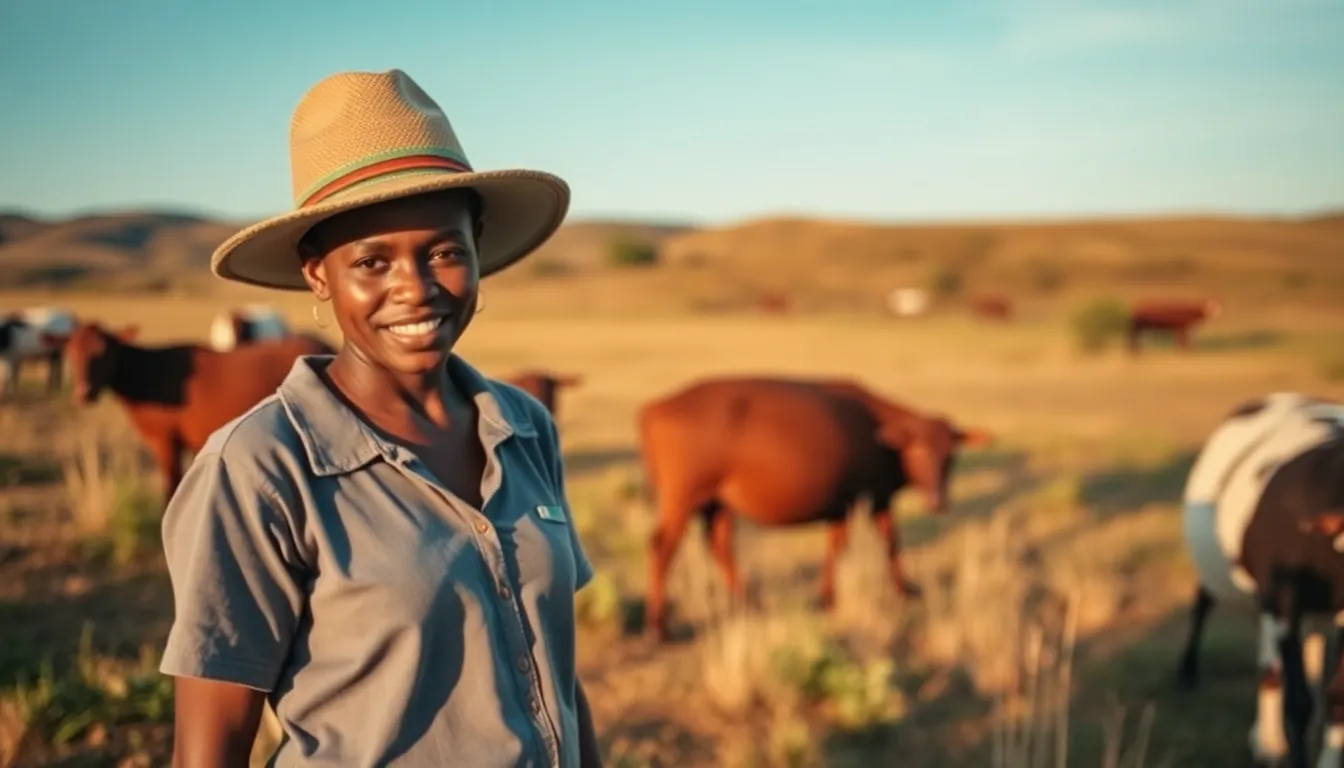Traveling offers transformative experiences, especially when they involve immersive activities that connect us with nature and local culture. In South Africa, one can discover a unique blend of adventure and purpose, particularly on its farms. This article explores the vital role of farming in South Africa and how it can enrich personal journeys.
The significance of farming in South Africa
Agriculture plays a crucial role in promoting economic stability and cultural identity in South Africa. With diverse climates and landscapes, the country is home to various farming practices, from crop cultivation to livestock rearing.
Farming not only supports the economy but also sustains local communities. It provides essential employment opportunities for millions of people, especially in rural areas. Here are some key aspects of the significance of farming in South Africa:
- Economic Contribution: Agriculture contributes significantly to the national GDP, enhancing trade and export opportunities.
- Job Creation: Millions rely on farming for their livelihood, fostering community development and resilience.
- Food Security: Local farms play a vital role in providing food for the population, ensuring nutritional needs are met.
- Cultural Heritage: Farming practices are intertwined with the rich cultural traditions of various South African communities.
- Environmental Sustainability: Sustainable farming practices promote biodiversity and conservation efforts.
What to know before buying a farm in South Africa
Investing in a farm can be a rewarding endeavor, but it requires careful consideration. Before making a purchase, potential buyers should evaluate various factors to ensure they make an informed decision.
Here are some essential points to consider:
- Location: Research different regions to determine which areas align best with your farming goals and lifestyle.
- Climate: Understand the climate conditions of the region, as they will significantly impact crop viability and livestock health.
- Soil Quality: Conduct thorough soil tests to ascertain its fertility and suitability for your intended agricultural activities.
- Legal Requirements: Familiarize yourself with local regulations and legal requirements for farm ownership and operations.
- Access to Resources: Ensure that the farm has access to necessary resources such as water, electricity, and transportation.
How to evaluate a farm in South Africa
Assessing a farm’s value involves a comprehensive analysis of various factors that contribute to its overall worth. Understanding these factors can help buyers make sound investments.
Key elements to consider when evaluating a farm include:
- Land Size: The total area can influence production capacity and future expansion possibilities.
- Infrastructure: Existing buildings, equipment, and facilities should be assessed for condition and functionality.
- Market Trends: Analyze current market conditions and future trends to estimate potential profitability.
- Environmental Impact: Consider the farm’s sustainability practices and their effect on the surrounding ecosystem.
- Community Relations: Assess the farm’s relationship with the local community, which can affect operations and support.
Requirements for applying for a farm in South Africa
Purchasing a farm in South Africa comes with a set of requirements that potential buyers must fulfill. Understanding these requirements can streamline the buying process.
The following steps are typically involved:
- Financial Assessment: Buyers need to assess their financial capability to purchase and maintain a farm.
- Documentation: Prepare necessary documentation, including proof of identity, financial statements, and any relevant permits.
- Legal Consultation: Consult with legal experts to navigate property laws and ensure compliance.
- Evaluation of Offers: Make informed offers based on thorough evaluations and possible negotiations.
- Finalizing the Purchase: Complete the transaction with the aid of legal and real estate professionals.
Experiencing farm life: A personal journey
For many, visiting a farm in South Africa is not just about agriculture; it’s about immersing oneself in a unique way of life. One traveler’s experience highlights the profound impact of engaging with local farming communities.
After arriving in Johannesburg with a sense of uncertainty, the traveler found herself in Karoo, a semi-arid region characterized by its stunning landscapes. The farm she visited, now a guesthouse, offered a blend of adventure and cultural exchange.
During her time on the farm, she participated in various activities:
- Herding cattle: An immersive task that connected her with the land and its traditions.
- Cooking meals: Sharing culinary experiences with the farm family fostered a sense of belonging.
- Building huts: Contributing to community projects helped her realize her desire to make a positive impact.
The experience was transformative, leading her to embrace sustainable tourism and the importance of giving back to the communities she visited.
Embracing sustainable tourism in South Africa
The concept of sustainable tourism is becoming increasingly vital in today’s travel landscape. By engaging with local communities and supporting eco-friendly practices, travelers can contribute to the preservation of cultural and natural resources.
Tourists visiting farms in South Africa can participate in sustainable initiatives by:
- Choosing eco-friendly accommodations: Opt for lodgings that prioritize sustainability and community involvement.
- Supporting local economies: Purchase goods and services from local vendors to help strengthen community ties.
- Participating in conservation efforts: Get involved in programs that promote biodiversity and environmental stewardship.
By making conscious decisions, travelers can enhance their experiences while also supporting the communities they visit.
Conclusion: The road to self-discovery through farm life
The journey through the South African countryside is more than just a physical adventure; it can be a path to self-discovery and fulfillment. Experiences on farms allow travelers to connect with nature, learn from local communities, and reflect on their values.
As one grapples with the complexities of modern travel, opportunities like working on a farm can provide clarity and purpose. It’s about embracing spontaneity, allowing for cultural exchanges, and ultimately finding what truly matters in life.







